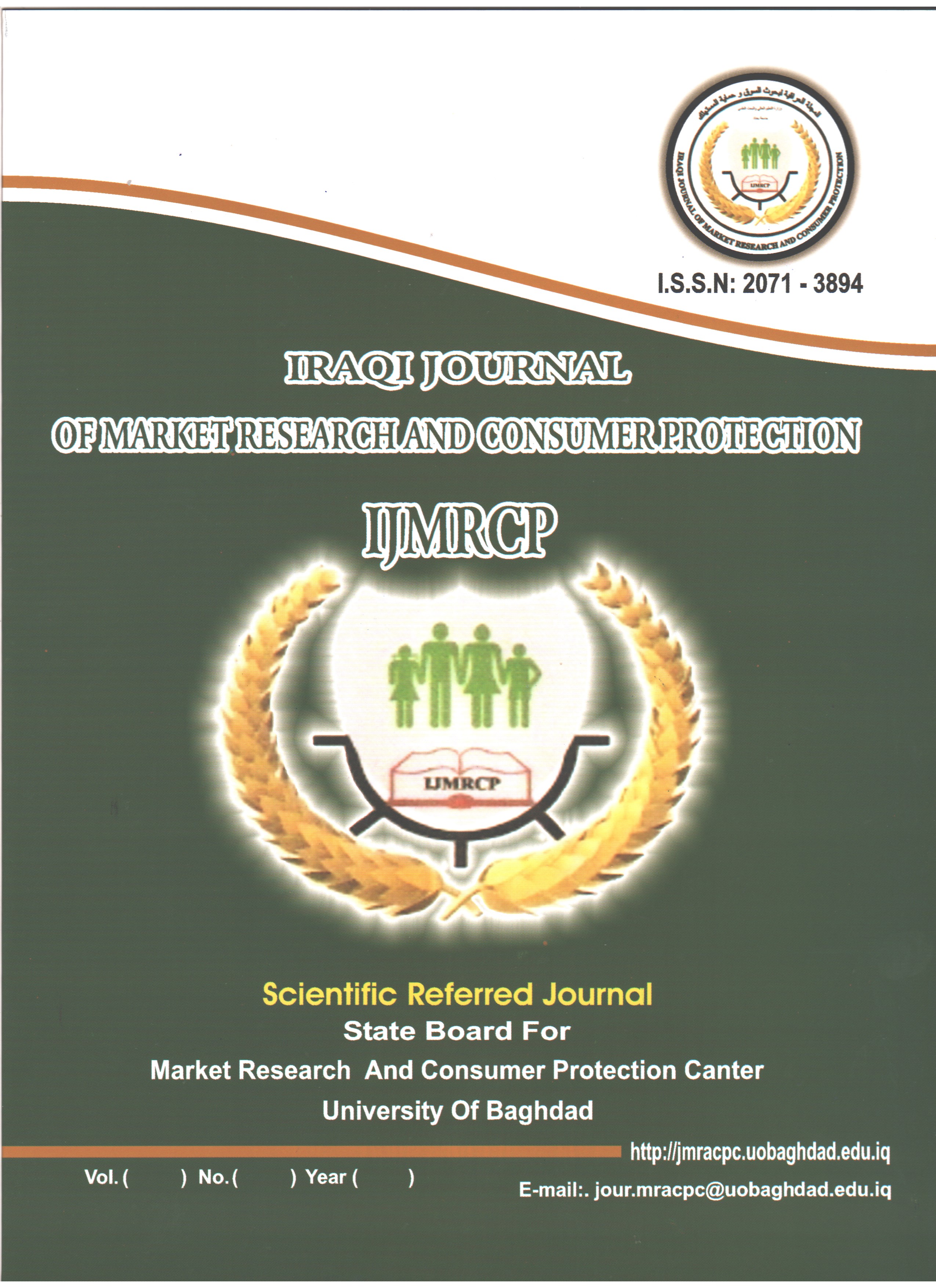Abstract
The research aims to study the effect of the commodity dumping phenomenon that Iraq suffered after 2003 on the consumption pattern of individuals, towards the acquisition of non-essential goods (luxury). To achieve our goal we relied on the questionnaire as a main tool for obtaining information related to the research, and it was distributed on a random sample of consumers in the city of Baghdad with 250 questionnaires. The answers of the research sample were analyzed using the statistical program (SPSS). The percentage weights and the factorial analysis method were used also to arrange the variables that affected on changing consumption patterns. The research reached a set of conclusions:
The degree of impact of the variables (economic, social and geographical) reached to76.503%, which considers as a good percentage of their impact on the consumer. The economic effects ranked first in their impact by changing the consumption pattern and the trend towards buying unnecessary goods, followed by the geographical effects and social effects respectively. One of the most important recommendations of the research was the quantitative and qualitative determination of the goods allowed to enter the local markets in accordance to quality standards, imposing high customs tariffs on imported goods, especially those non-essential goods, and control of border ports.
The degree of impact of the variables (economic, social and geographical) reached to76.503%, which considers as a good percentage of their impact on the consumer. The economic effects ranked first in their impact by changing the consumption pattern and the trend towards buying unnecessary goods, followed by the geographical effects and social effects respectively. One of the most important recommendations of the research was the quantitative and qualitative determination of the goods allowed to enter the local markets in accordance to quality standards, imposing high customs tariffs on imported goods, especially those non-essential goods, and control of border ports.
Keywords
commodity dumping
consumer
consumer tendency
consumerism.
unnecessary goods
Abstract
يهدف البحث الى دراسة تأثير ظاهرة الاغراق السلعي التي عانى منها العراق بعد عام 2003 بنمط استهلاك الافراد، بالاتجاه نحو اقتناء السلع غير الضرورية (الكمالية)، لتحقيق هذا الهدف تم استخدام الاستبانة كأداة رئيسة للبحث والحصول على المعلومات، وقد تم توزيعها على عينة عشوائية من جمهور المستهلكين في مدينة بغداد بواقع 250 فردا، حللت اجابات العينة باستخدام البرنامج الاحصائي SPSS وقد تم استخدام الاوزان المئوية واسلوب التحليل العاملي لترتيب المتغيرات التي اثرت بتغيير انماط الاستهلاك. وقد توصل البحث الى مجموعة من النتائج منها؛ بلغت درجة تأثير المتغيرات (الاقتصادية والاجتماعية والجغرافية) 76.503% وهي نسبة جيدة بتأثيرها على المستهلك، حصلت الاثار الاقتصادية على الترتيب الاول بتأثيرها بتغيير نمط الاستهلاك والتوجه نحو شراء سلعا غير ضرورية، تلتها الاثار الجغرافية وجاءت الاثار الاجتماعية بالترتيب الثالث. وقد كان من اهم توصيات البحث التحديد الكمي والنوعي للبضائع المسموح بدخولها للأسواق المحلية، بتطبيق مواصفات الجودة، وفرض التعريفة الجمركية على البضائع المستوردة، خصوصا تلك السلع غير الضرورية، ومعالجة قضايا الفساد في المنافذ الحدودية والسيطرة على المنافذ غير الرسمية.
Keywords
الاغراق السلعي، المستهلك، سلع غير ضرورية، ميل
